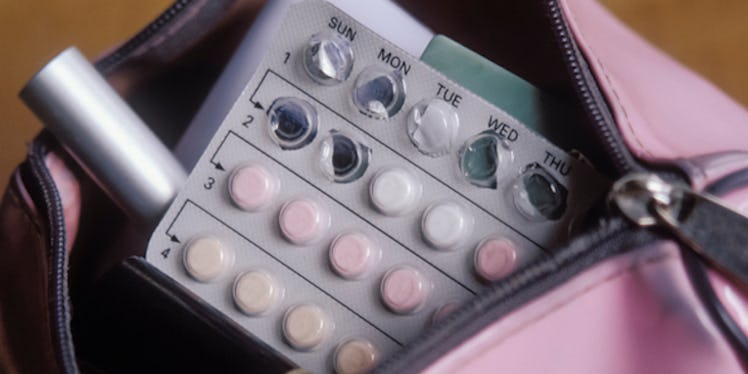
This Is What Doubling Up On Birth Control Pills Can Really Do To Your Body
I would have opted out of birth control a long time ago had it not been for the fact that I have zero interest in having a child right now.
Contraception is great in that respect, but I've been prescribed at least five different kinds of birth control pills since I was 18 years old, and each one has had its own set of miserable side effects.
There were pills that made my cycle irregular, including skipped periods here and there and breakthrough bleeding that would last for weeks.
But the worst symptoms came from contraceptives that made me unbearably nauseous minutes after taking them -- the ones that gave me cramps whether I was due to bleed or not.
But nothing compares to what my body has endured as a direct result of doubling up on birth control pills.
There have been plenty of instances in which I forgot to take a pill or two, and there was even a time when I somehow convinced myself it was placebo week, and I skipped three pills in a row.
Unfortunately, when this happens, the options are limited.
As far as I was concerned, I could either start over completely or double up a day or two in a row.
Neither option sounded appealing, especially when I considered the side effects I could expect from both.
First, there was the then-increased probability that I could become pregnant.
Katherine O'Connell White, a practicing obstetrician and gynecologist at Baystate Medical Center, former assistant professor of obstetrics and gynecology at Columbia University Medical Center, and contraception expert, told Time,
With regard to what missing pills can do to effectiveness, if you miss one pill, the hormones are in your blood enough that when you take that pill late, or even the next day if you double up, so to speak, you're not at increased risk for pregnancy. If you miss two, though, you are now at risk.
Fortunately, she explained, there's a bit of a margin of error when it comes to missing just one pill.
But not so fortunately, missing more than one pill puts you at risk.
Yikes.
Second, birth control is a prescription drug, and can incite both minor and major side effects when taken in large doses.
I know myself, and when I have to fill out any kind of form that asks me about medication, I rarely think to write in birth control.
But that is exactly what the birth control pill is.
I get queasy if I take aspirin without a meal, so you can imagine the heinous effects two tablets full of synthetic hormones can have on me (think nausea, breakthrough bleeding, and abdominal cramping -- all wreaking havoc on my body at once).
Though these physical symptoms aren't necessarily common, they aren't unheard of.
Dr. Charles Ascher-Walsh, founder of ExpertAlternatives.com, director of the Division of Gynecology and co-director of the Division of Minimally Invasive Surgery at The Mount Sinai Hospital in New York City, tells Elite Daily that, although nothing bad typically happens when doubling up on birth control pills, physical ailments like nausea and breast tenderness can occur due to the "higher doses of estrogen, [despite] the low dose of estrogen in pills now."
He goes on to explain that headaches, diarrhea, and irregular bleeding — while less common — are possible, as well.
Unfortunately, there is no magic pill to relieve these side effects. The solution, Ascher-Walsh says, is not to forget:
There is no way around this other than not forgetting. Take the pill with something else that you do every day, like brushing your teeth.
Of course, this depends on individual circumstances.
For some, doubling up on birth control pills has little to no impact on the body.
For others, like myself, two pills in a day does more harm.
It all factors into how someone's body reacts to medication, or how high of a dosage they're taking in the first place.
If this is something you've experienced on more than one occasion, or if birth control pills in general just aren't working for you, it may be worth discussing alternative methods with your doctor.